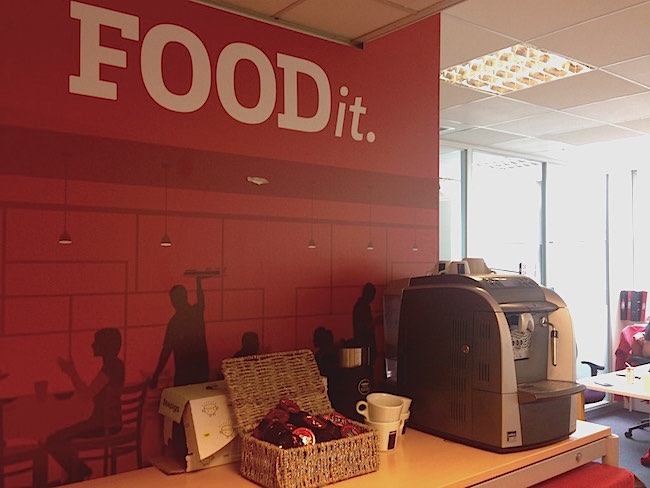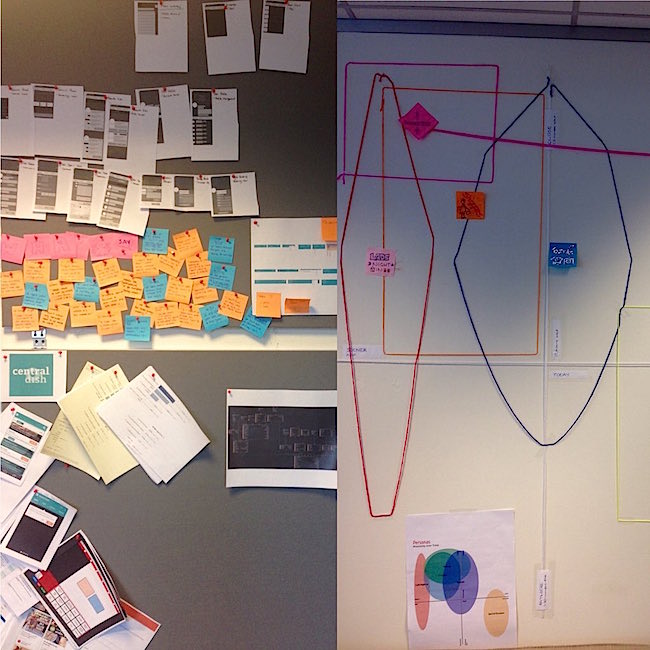When we found out that Joel Spolsky, the founder of Stack Overflow and Trello, was coming to speak at the Barbican as part of the London Tech Week, we knew we wanted to be there. We’ve been fans of Spolsky here at FOODit for a while and read his Smart and Gets Things Done as part of our book club.
The subject that Spolsky explored is very close to our heart. We have struggled with developer recruitment a lot and tried a myriad of different techniques and methods, slowly realizing what works and what doesn’t. We shared what we had learnt about our hiring process and the importance of recruiting the right people in an article which you can read here.
London is experiencing a powerful tech boom at the moment which is responsible for nearly a third of all new jobs in the City and has almost eradicated unemployment for qualified developers. Reports show that UK developers are some of the best-paid and most highly skilled coders in the world. This makes it a very candidate-driven market and as startups we are not in the position of having our pick unlike globally renowned companies such as Google or Facebook. Naturally, this also makes it more difficult for startups to get noticed by those dream candidates which is why Spolsky worked on isolating the 10 most important factors when recruiting developers, gathered from numerous surveys, reports and his own extensive experience.
Here’s our run-down of them:
1. Physical workspace
The importance of the attractiveness of the actual workspace should not be underestimated as it is one of the things that developers look for when choosing where to work. Things employers should take into consideration when thinking of office space are colour, plenty of coffee, desks with adjustable height, sunlight, sports and games. It is something we are constantly trying to improve here at FOODit - we currently have a “drinks station” and an espresso machine in constant use.

2. Office location
Choosing an office in a lively, urban area will highly increase the chance of a job looking more attractive to a potential candidate; it’s better to be at the beating heart of the city than out in the wastelands of zone 6. Also, the ability to work remotely is something that 44% of developers value highly. Our office is based in Shoreditch which is currently the place to be for a young startup in London. Every day we have hundreds of places to choose from when we want to have lunch or Friday drinks.
3. Creativity
The ability to be imaginative and creative in your daily role and duties. For example, not constantly tweaking and reworking old code, but creating it new and not getting sucked in by routine. At FOODit, for example, we encourage the designers to line the walls of the office with their work and infographic maps. We are also constantly building new things and the developers get to be a big part of the planning and creative process behind them.

4. Goals and values that are easy to identify with
A candidate will be much more likely to stick with the company for a long time if they share the same values. This can also be increased by encouraging socialising between the employees like creating sports and music groups or any other social cohesions. The way we try to encourage this is we have weekly team meals together and frequently engage in group activities like go karting or poker nights.
5. Great tools and hardware
Do not hesitate to invest into good tools for the employees and encourage them to ask for whatever they want or need to make their work more comfortable and efficient. Here at FOODit all the employees get their own hardware choice and for those who want to use their own devices - we have the BYOD policy to support them.
6. Excitement about the company’s product
54% of developers say product details are the most important aspect of a new job. The employees who feel passionate about what they do are generally much happier and efficient at work. One of the ways in which we try to encourage this is by giving a little internal perk for the employees to proactively use our product: they get £520 per year to use on ordering food via the FOODit platform.
7. Independence
You need to be able to trust your employees. They need to have the freedom to run with their ideas and work independently. Here at FOODit we try to achieve this by setting up OKRs for each department and giving each employee the freedom to achieve them through their own ideas and resources.
8. Good management
The potential employee must like who they will work for. The management represents the entire company and a bad boss/interviewer will be a major turn-off when picking a company to work for.
9. High caliber team
You need to make sure your candidate knows that he or she is joining a fantastic and talented team! We let our candidates know just how amazing the team they're joining is by introducing them to other employees, taking them out for lunches and drinks and showing them what a great collective they will work in.
10. Growth
Investing in the employee’s continuous education is also an important aspect. Investing in TED talks, guest speakers, book clubs, conferences and training classes is essential for the people in the company to grow, improve and feel like they’re developing as a person – otherwise it is just a waste of time. Here at FOODit we highly encourage all our employees to use their learning budget and go to conferences, classes and events that will enhance their knowledge and help them grow both personally and professionally. We are also very passionate about our monthly book club meetings during which we discuss some of the team’s most highly-recommended books.
After the presentation, there was a 15 minute Q&A during which we discussed testing, application tasks and how to attract more female coders to work for your company. It was an interesting and enlightening conversation which also breathed some reassurance and confidence into us – we are not alone in these challenges. Every company deals with the same issues and questions when it comes to developer recruitment and it is great to have outlets for discussing these problems collectively.
It was also great to see that we are already doing some of the things that were mentioned - and we’re doing them right. For example, our development team is currently 40% female which is something that has been mentioned by other people as both important and a struggle.
We took away some great advice and a refreshed positive attitude from the event which we can’t wait to apply to our recruitment methods. We continue to effectively use Stack Overflow to source our Java and JavaScript developer candidates and we’re excited to implement great changes into the way we communicate our job openings. It is great that talented and experienced people such as Joel Spolsky choose to share their industry knowledge and we look forward to seeing his future endeavours!